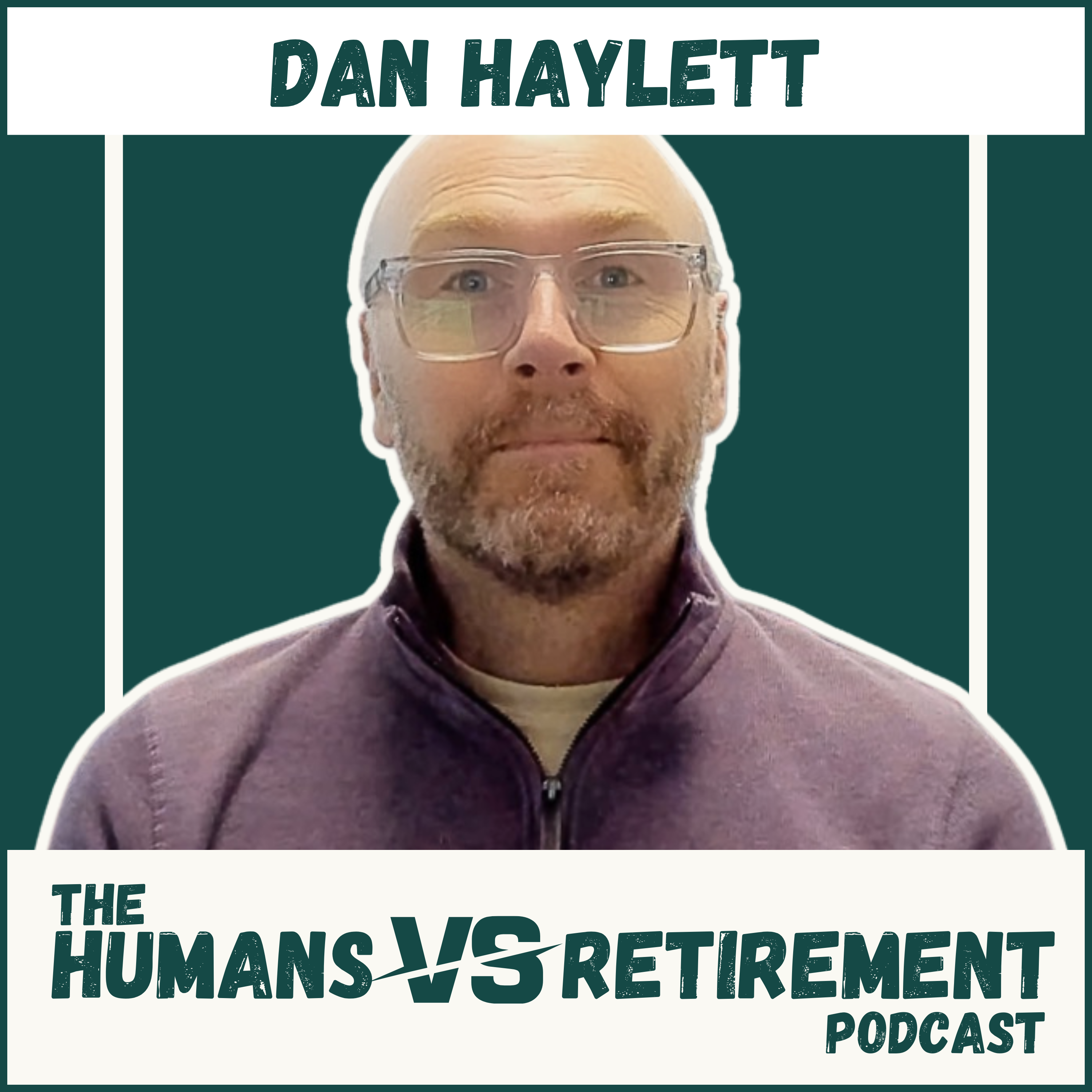

The Humans vs Retirement Podcast
Dan Haylett
Humans vs Retirement is the podcast that proves retirement isn't just about money, it's about life. Hosted by me Dan Haylett, I dive into the real, human side of retirement: the emotions, the mindset shifts, and the messy, wonderful journey of reinventing yourself for the next chapter. Through honest conversations with experts and inspiring stories from retirees themselves, you'll get the tools, ideas, and encouragement you need to retire to something, not just from something.
If you want to make your second half even better than your first, hit subscribe and join the Humans vs Retirement community.
If you want to make your second half even better than your first, hit subscribe and join the Humans vs Retirement community.
Episodes
Mentioned books

May 5, 2024 • 8min
Ep 9 of 10 - The 4 Key Factors To Happiness In Retirement

May 4, 2024 • 8min
Ep 8 of 10 - Yes & No Are The 2 Most Powerful Words In Retirement

May 3, 2024 • 9min
Ep 7 of 10 - Give Money With A Warm Heart Not A Cold Hand!

May 2, 2024 • 9min
Ep 6 of 10 - How Are You Going To Spend Your Time In Retirement?

May 1, 2024 • 10min
Ep 5 of 10 - Going From A Savings Habit To A Spending Mindset

Apr 30, 2024 • 13min
Ep 4 of 10 - How The Japanese Concept of Kanreki Can Teach Us Valuable Retirement Lessons

Apr 29, 2024 • 9min
Ep 3 of 10 - The Human Quirk of Relative & Absolute Outcomes

Apr 28, 2024 • 8min
Ep 2 of 10 - Looking at The Harvard 85 Year Study To Determine What makes A Happy Retirement

Apr 27, 2024 • 8min
Ep 1 of 10 - Embracing Uncertainty

Apr 26, 2024 • 3min


